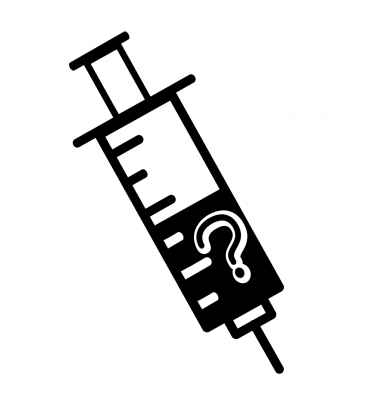The U.S. Food and Drug Administration has yet to approve any COVID-19 vaccines. However, the organization is expected to approve and distribute the Pfizer vaccine by mid-December, just a couple of weeks away. Moderna, based in Cambridge, expects to distribute a vaccine soon after, Gov. Charlie Baker said at a press conference Tuesday.
But the release of the vaccine doesn’t automatically solve the pandemic. For one, the first few batches will likely be distributed solely to frontline health workers and high-risk individuals.

Baker predicts it will be months before the general public has access to the vaccine, after which Bob Wachter, chair of the University of California San Francisco Department of Medicine, predicts the entire country will be vaccinated by December 2021.
Additionally, vaccination laws are governed by individual states, and Massachusetts currently has no intention of mandating the vaccine.
Thirty-eight percent of Massachusetts adults would either be very or somewhat unlikely to get vaccinated, according to a Western New England University poll. The survey found top reasons were “lack of trust” in the vaccine’s development and concerns about feeling ill.
The current reluctance to receive a COVID-19 vaccine is understandable. Based on research trends, the public was under the impression it would take years, maybe even a decade, to create a vaccine. The speed at which these new vaccines have come out may certainly be cause for concern — it took decades to develop influenza and chickenpox vaccines.
Of course, a portion of the population shares general anti-vax sentiments, and some even believe COVID-19 is a hoax.
Both sets of worries boil down to a distrust of the government, U.S. Centers for Disease Control and Prevention or FDA. This is no surprise under President Donald Trump’s administration, and even less of a surprise when it comes to communities of color, which historically have suffered harm from implicit bias and racism within the health care system.
When the government shows a repeated disregard for your health, it makes sense to be apprehensive.
But, these COVID-19 vaccines have undergone all the necessary testing phases. Moderna’s vaccine has a 94-percent efficacy rate, and because it uses mRNA technology, there’s an assurance you won’t get infected from the shot itself.
It’s fine to want to check our sources for peace of mind, but we should not dismiss the vaccine out of fear. Clinical trials have taken place to ensure the vaccines are safe. Plus, when COVID-19 has affected — and continues to affect — hundreds of millions of people, everyone must reconsider their priorities.
Take it from Yasir Batalvi, a 24-year-old Moderna vaccine trial participant. In an interview with CNN, Batalvi described a range of side effects he endured, including low-grade fever, fatigue, chills and muscle pain. Don’t let that alarm you — these are all normal, temporary vaccine side effects that confirm your immune system is working. It is not a sign you’ve been infected.
Despite the discomfort, Batalvi says it was worth it. He said receiving a vaccine is an important “public service” and that “mass-scale vaccination is really the only realistic way out of the pandemic that we’re in.”
He’s not wrong. We need 70 percent of the public vaccinated or protected in order to induce herd immunity.
So, the 30-plus-percent of adults in Massachusetts who are unwilling to take the vaccine could endanger those around them — even after everyone else has been vaccinated. However, it is also entirely possible attitudes will shift as people learn more information and the vaccines are administered.
In any case, because the vaccine remains unavailable to the general public for the next few months, it is crucial we don’t lower our standards for safety. Though the holidays are approaching, we must fight against a sense of complacency. We cannot forget the pandemic is ongoing, whether the vaccine is approved or not.
Even after the vaccine is released, we should practice caution. The COVID-19 vaccine requires two shots, three to four weeks apart, during which you are not yet fully inoculated.
Furthermore, it takes time for the body to build immunity and generate antibodies from a full vaccination. In this time, though unlikely, if someone isn’t following safety guidelines, they could contract COVID-19 from a lowered immune system and spread it to those around them.
The distrust and vaccine hesitancy among the general public speaks to how long it will take to return to any semblance of normalcy. If we want to see pre-pandemic life restored by the end of next year, we’ll need a unified, national effort to continue wearing masks, practice social distancing and get vaccinated as soon as we’re able.
















































































































